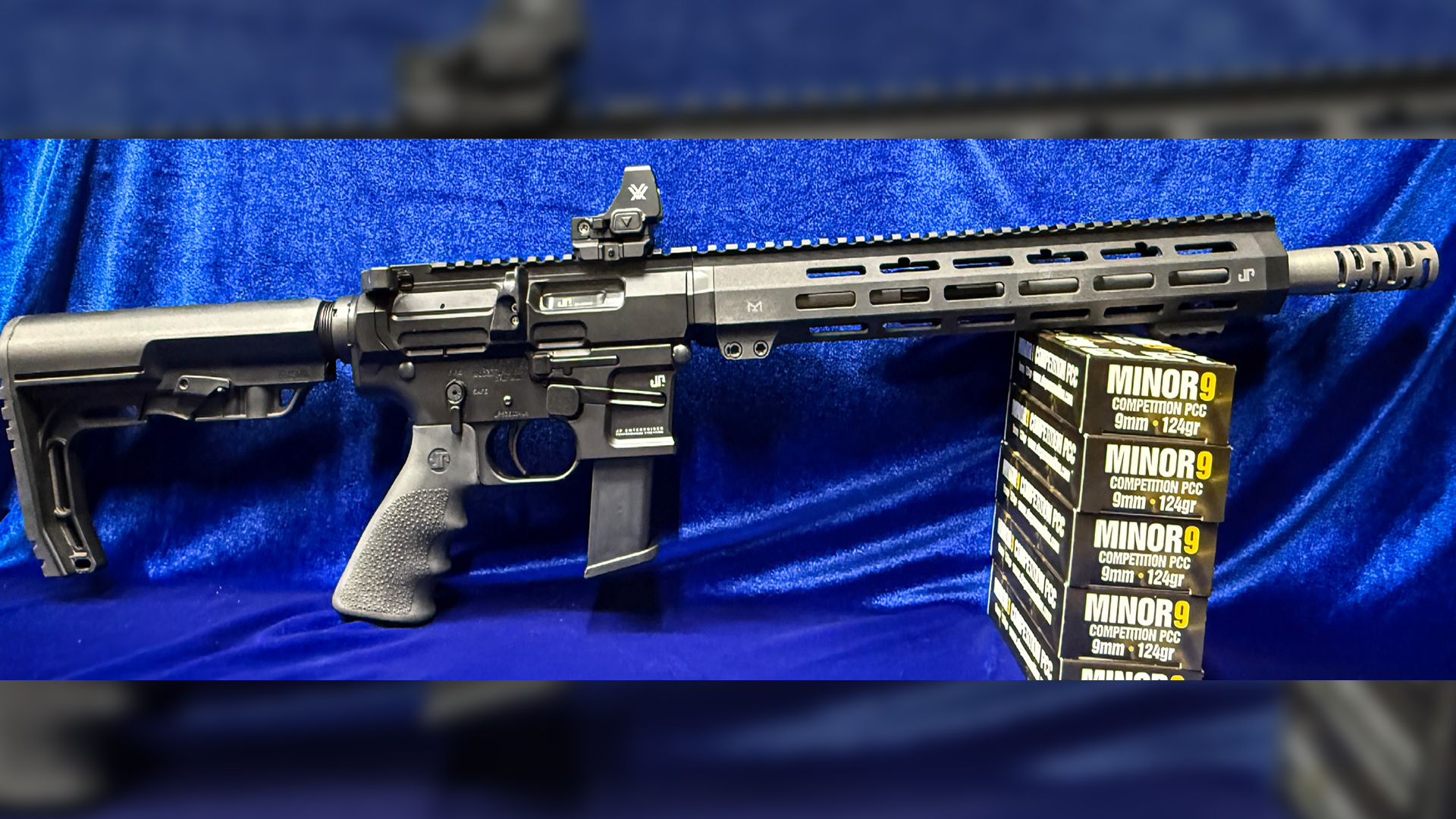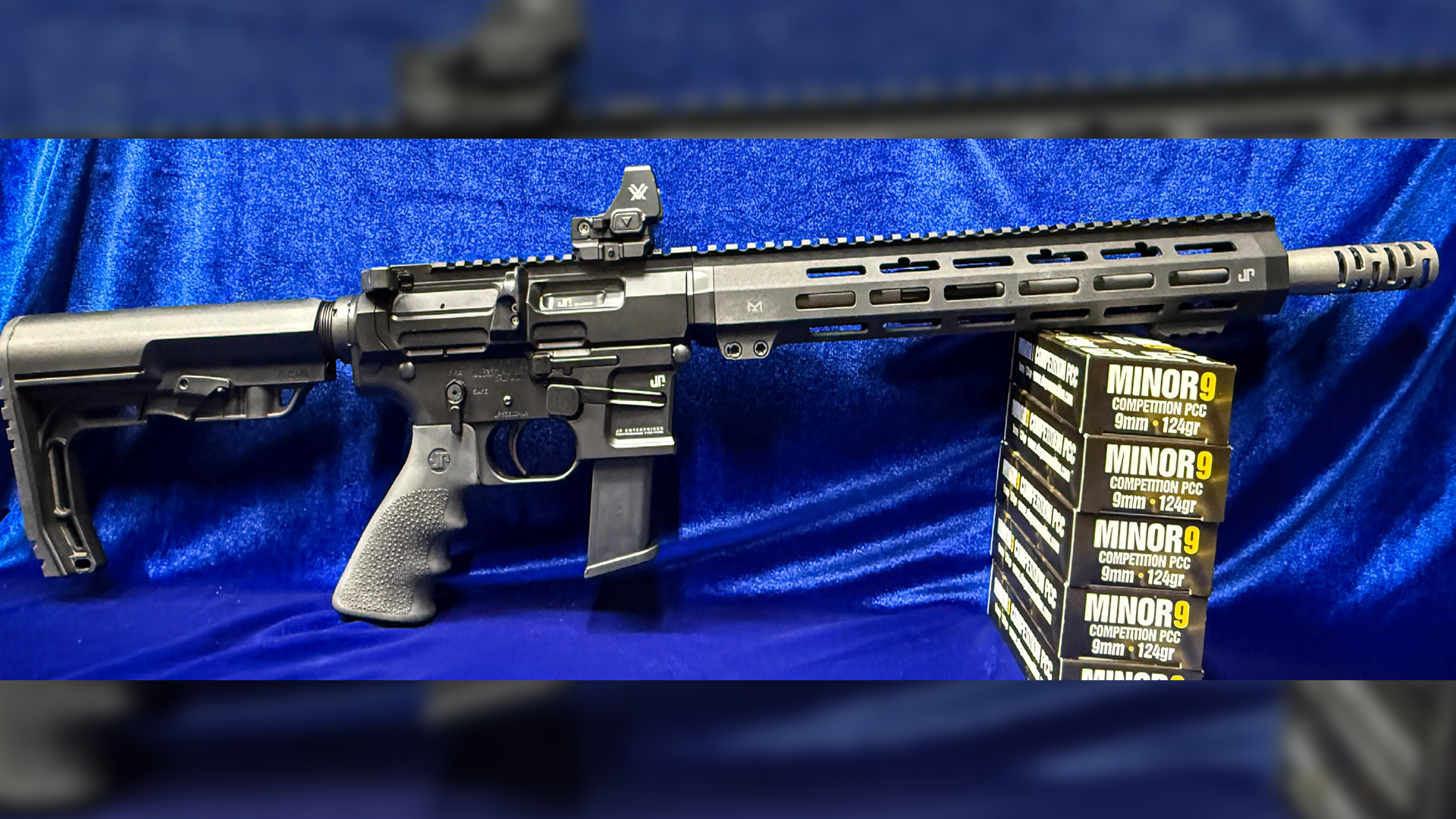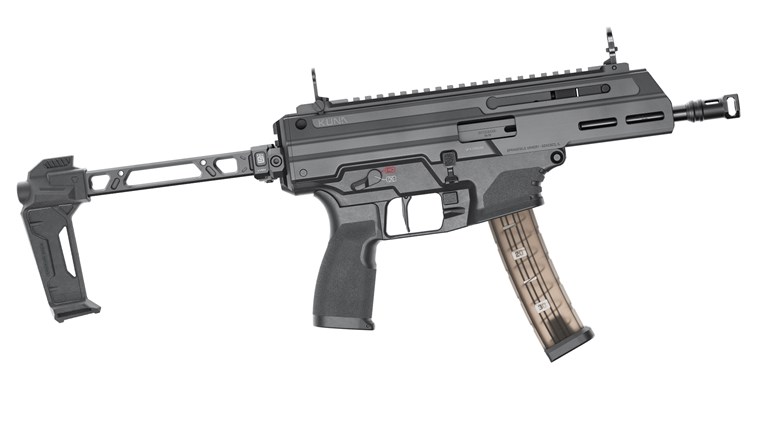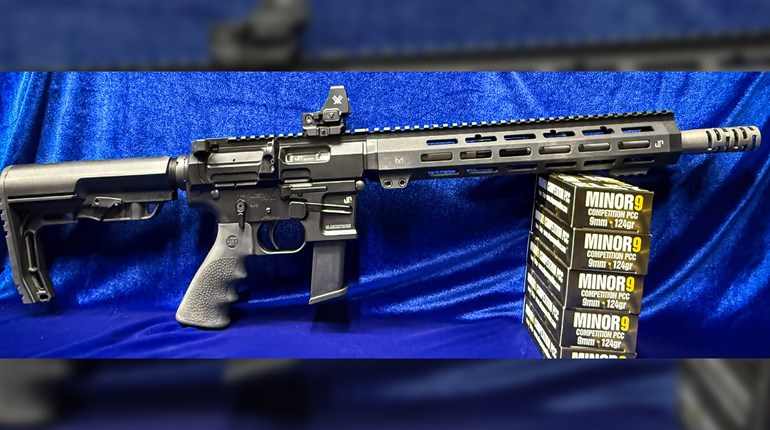
The iconic Beretta 92 handgun has been in use since its release in 1975. The 92, however, had evolved over the years from other Beretta designs, primarily the M1923 and M1951. The M1923 had the open slide design found on the 92 series and the alloy frame and locking block barrel were first used by Beretta in the M1951. There are other features that were found on early Beretta models, such as the front sight integrated with the slide and the grip angle. The direct feed where there is no feed ramp between the magazine and the chamber first appeared on the Model 84, a Beretta innovation in pistols. The double stack magazine, first introduced in 1935 on the Browning Hi-Power, was also part of the Beretta 92 design, something that was not common in the mid-1970s in semi-automatic pistols.

The Beretta 92 was adopted by the U.S. military in 1985, designated as the M9. The design has had many variants in the lineup over the last 45 years. (Read Aron Bright's review of the heavyweight Production division-ready Beretta 92X Performance model.)
In 2021, Beretta was continuing to update the 92 lineup with the introduction of the M9A4 and the 92XRDO models. These were red-dot-optic-ready guns direct from the factory. The company also released the 92X Performance Defensive (MSRP: $1,649). This model was designed specifically to meet IDPA rules, where the Carry Optics division maximum weight is 45 ounces.
The 92X Performance Defensive uses a Brigadier slide, and the steel frame has been lightened compared to the 92X Performance. The frame on the 92X Performance Defensive does not have the integral Picatinny rail that is included on other 92X models. Other weight-savings come from thin grips and a polymer guide rod in place of the steel guide rod found in the 92X Performance model.

Other features that are the same are the extended controls like the “stealth lever” slide stop designed to not interfere with the weak-hand grip. The “Match” takedown lever with its extended edge gives a precise reference point for the weak-hand thumb, and the oversized magazine release button is also included on this variant. However, the ambidextrous thumb safeties are reduced in size—think more of a tactical size versus the target style on the 92X Performance. (This is one feature to be aware of on the 92X Performance model, that the wide safeties do not fit the Production division box and you need to change it out or modify it.)
The Defensive model includes the Xtreme-S Trigger System that is fully adjustable. Paired with the lightweight skeletonized hammer and competition hammer spring, Beretta has a good out-of-the-box double-action, single-action trigger system. On my Wheeler Engineering digital gauge, I averaged 5.2 pounds, 8 ounces for the double-action pull and for the single-action it was 2.4 pounds, 9 ounces. The reset is short for a DA/SA pistol with a solid wall and a little creep before a clean break. Compared to the 92X Performance, the reset is shorter on the 92X Performance Defensive, but the 92X Performance doesn’t have that little bit of creep before the break like the Defensive does. Shooting them at speed, you can’t tell the difference.
The slide on the 92X Performance Defensive model has the same sawtooth front and rear slide serrations for maximizing your grip when manipulating the slide. The Brigadier slide has internal weight reduction and is factory-ready with a red-dot cut. There are five available plate options that can be purchased from Beretta.

The Beretta 92X Performance Defensive ships with two 15-round magazines, plus an additional set of thicker wraparound-style grips, the adjustable sight tool, mag loader and the usual manuals and lock in a hard-sided case. I purchased extra 17-round magazines, but wasn’t able to get aftermarket basepads in time for the shooting part of the review.
Before I took both the 92X Performance and the 92X Performance Defensive handguns to the range, I weighed them on a digital scale. The Performance with empty 15-round magazine was 48.5 ounces and the Defensive was exactly 45 ounces with the Vortex Razor RDS mounted. I headed to the range to try to duplicate some of the drills that Aron Bright and I ran while testing the 92X Performance model in 2020. I made sure both guns were sighted in and adjusted the Vortex Razor. This was also a chance to break-in the new 92X Performance Defensive model, since it was new from the box.
After about 100 or so rounds, I set the 10- and 12-inch plates at 15 yards for distance spread about 20 yards wide, and had a start in the center of the array with wrist below belt. I ran the iron sights on the 92X Performance model first with similar times to what I had the last time I shot this drill with this gun. Nothing impressive—4.24, 4.01 and 3.98—but I had all eight hits on each run. Next, I swapped to the 92X Performance Defensive model and ran the same drill three times with times of 3.94, 3.65 and 4.44. The slower time was with two make-up shots; I was getting ahead of the dot. The dot height is a little taller than what I was used to shooting, so I decided to spend a little more time running the gun drawing into the 10-inch plate with one shot to get used to finding the dot. I ran through about 50 rounds doing this and then added a second shot to track the dot. After about 50 more rounds, I felt good about how I was shooting the gun. I loaded up some more magazines and went back to drawing into the 10-inch plate but added a transition to the 12-inch plate. I wasn’t feeling too good about this at first with several missed shots on the transition. I reloaded the mags and went back to work on this until I was feeling better and more comfortable with the gun. I fired about 350 rounds of Federal Syntech Action Pistol 150-grain ammo through the 92X Defensive model and called it day.

The next range trip I had the new Eley Competition 9 mm ammunition (115-, 124- and 147-grain), but was at the indoor range to test for function and accuracy. It was 34 degrees outside and I wasn’t hitting the outdoor range. I had 250 rounds of each bullet weight but was only going to shoot 100 rounds of each load and save the rest to chrono and test through several different guns. With mags loaded up, I sent the target down to the 15 yard mark and proceeded to shoot 20-shot groups. The gun and the Eley ammo were very accurate with consistent 1.5- to 2-inch groups using the CED range bag as a rest.
I emailed Beretta Team member J.J. Racaza about the Carry Optics setup that he used to win Nationals with. He was running the red-dot ready slide from the 92X Performance Defensive model on the frame of the 92X Performance, so I did the same thing and ran about 100 rounds of the Eley 124-grain and 147-grain ammo through it. I liked this setup best with the 124-grain Eley. When I got home, I weighed this setup with a 17-round mag and it was 49.9 ounces with the Vortex Razor mounted. The dot tracks great and the heavy gun shoots flat, weighing nearly five ounces more than the 92X Defensive model from the box.
With more than 45 years of service, reliability and performance behind it, the Beretta 92X race-ready variants deserve your attention. Find out more about these models and the entire Beretta catalog of firearms, apparel and accessories at beretta.com.
Article from the January/February 2022 issue of USPSA’s magazine.



































